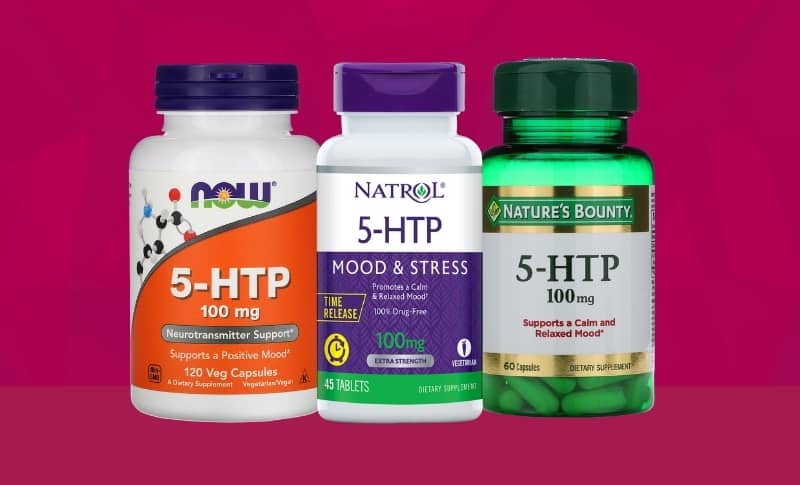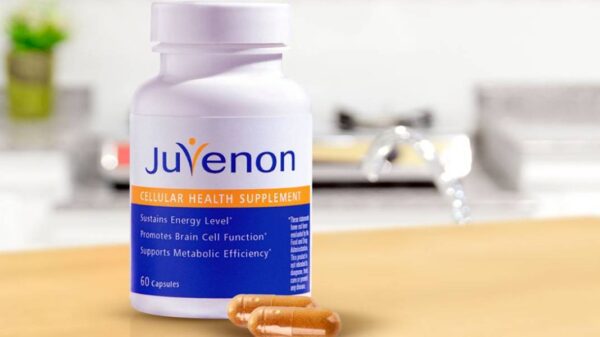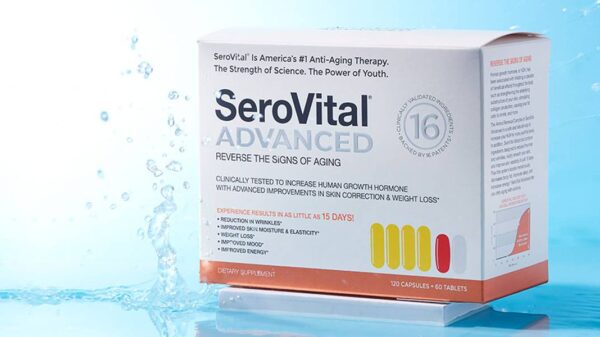5-Hydroxytryptophan, commonly known as 5-HTP, is a naturally occurring amino acid that plays a crucial role in producing serotonin, a neurotransmitter that significantly influences our mood, sleep, appetite, and even pain sensation. While our bodies can produce 5-HTP from the essential amino acid tryptophan, which we obtain from our diet, it is also available in supplement form.
- The Importance of 5-HTP in the Human Body
- Natural Sources of 5-HTP
- The 5-HTP Supplement
- The Potential Benefits of 5-HTP Supplements
- Risks and Side Effects of 5-HTP Supplements
- Interactions with Other Medications
- Recommended Dosage
- Best Time to Take 5-HTP Supplements
- Precautions to Take While Using 5-HTP Supplements
- Conclusion
The Importance of 5-HTP in the Human Body
As a precursor to serotonin, it plays a vital role in maintaining mental and emotional well-being. Serotonin is often referred to as the ‘feel good’ neurotransmitter because it contributes to feelings of well-being and happiness. Furthermore, serotonin is converted into melatonin, a hormone that regulates our sleep-wake cycle. Therefore, 5-HTP indirectly aids in managing sleep patterns and overall sleep quality.
Given its role in serotonin production, 5-HTP has been explored as a supplement to address various health issues related to serotonin deficiency, such as depression, anxiety, sleep disorders, and even certain types of migraines. Some people also use it for weight loss, as increased serotonin levels can help control appetite. However, like any supplement, 5-HTP should be approached with an understanding of its potential benefits and risks, which we will explore in the following sections of this article.
Natural Sources of 5-HTP
While the body can produce 5-HTP from L-tryptophan found in high-protein foods like turkey, chicken, milk, potatoes, pumpkin, and various greens, the conversion process is complex and can be inefficient. Therefore, dietary intake of these foods does not significantly increase 5-HTP levels.
The primary natural source of 5-HTP is the seeds of the Griffonia Simplicifolia plant, a woody climbing shrub native to West and Central Africa. Extracts from these seeds are used in the commercial production of 5-HTP supplements.
The 5-HTP Supplement
There are several reasons why individuals may choose to take 5-HTP supplements. Given its role in serotonin production, 5-HTP is often used to help manage conditions associated with low serotonin levels. These include depression, anxiety, insomnia, and certain types of headaches. Some people also use 5-HTP to help with weight loss, as increased serotonin levels can help control appetite and reduce cravings. Additionally, 5-HTP supplements may be used to help manage fibromyalgia symptoms and improve sleep quality.
How 5-HTP Supplements are Made
Commercial 5-HTP supplements are typically derived from the seeds of the Griffonia Simplicifolia plant. The process involves extracting 5-HTP from the seeds, purifying it, and then converting it into a form that can be consumed orally. The final product is usually encapsulated or made into tablets, but it can also be found in powder form. It’s worth noting that the quality and purity of 5-HTP supplements can vary significantly between manufacturers, so it’s important to choose products from reputable sources.
5-HTP can also be found in certain multi-ingredient supplements, combined with other substances believed to have a synergistic effect. For example, it may be combined with vitamins, minerals, or other amino acids that enhance its absorption or effectiveness.
The Potential Benefits of 5-HTP Supplements
Here are some of the potential benefits of 5-HTP supplements:
- Depression: 5-HTP is often used as a natural remedy for depression. It works by increasing the production of serotonin, a neurotransmitter that plays a key role in mood regulation. Some studies suggest that 5-HTP may be as effective as certain antidepressant drugs for treating mild to moderate depression.
- Anxiety: Similar to its effects on depression, 5-HTP may also help alleviate anxiety. By boosting serotonin levels, it can help promote feelings of calmness and well-being, potentially reducing anxiety symptoms.
- Sleep Disorders: 5-HTP can be beneficial for sleep disorders like insomnia because it contributes to the production of melatonin, a hormone that regulates sleep. Some research suggests that 5-HTP may help improve sleep quality and duration.
- Weight Loss: 5-HTP may aid in weight loss by helping to reduce appetite. Serotonin is known to control satiety and food intake, and by increasing serotonin levels, 5-HTP may help individuals feel fuller faster, leading to less calorie intake and potential weight loss.
- Migraines: Some studies suggest that 5-HTP may benefit individuals suffering from migraines. The exact mechanism is not fully understood, but it’s believed that increased serotonin levels may help reduce the frequency and severity of migraines.
Numerous studies have explored the potential benefits of 5-HTP. For instance, a review of studies published in the “Journal of Neural Transmission” found that 5-HTP may be as effective as antidepressants in treating depression.
Another study published in the “American Journal of Clinical Nutrition” found that 5-HTP supplementation led to early satiety and decreased food intake, leading to weight loss in obese women.
For sleep disorders, a study published in “Psychopharmacology” found that 5-HTP improved the quality of sleep in individuals with chronic insomnia.
Regarding migraines, a study in the “European Neurology Journal” found that 5-HTP supplementation could reduce the frequency of migraines in patients.
However, while these studies are promising, more research is needed to fully understand the benefits of 5-HTP and to establish standardized dosing guidelines. As always, it’s important to consult with a healthcare provider before starting any new supplement regimen.
Risks and Side Effects of 5-HTP Supplements
While 5-HTP is generally well-tolerated, it can cause side effects in some people, especially at high doses. Common side effects include nausea, vomiting, diarrhea, and stomach pain. Other less common side effects may include drowsiness, muscle problems, sexual and menstrual problems, and vivid dreams or nightmares.
One of the major risks associated with 5-HTP is a condition called serotonin syndrome, which can occur when there is too much serotonin in the brain. This is a potentially life-threatening condition that can cause symptoms like agitation, hallucinations, rapid heartbeat, fever, and loss of coordination. While this is rare, it’s more likely to occur if 5-HTP is taken with other substances that increase serotonin levels, such as certain antidepressants.
Additionally, those with existing heart conditions, liver disease, or pregnant and breastfeeding women should avoid using 5-HTP unless under the supervision of a healthcare provider, as the safety of 5-HTP in these populations is not well-studied.
Interactions with Other Medications
5-HTP can interact with various medications, particularly those that affect serotonin levels. These include selective serotonin reuptake inhibitors (SSRIs), serotonin and norepinephrine reuptake inhibitors (SNRIs), monoamine oxidase inhibitors (MAOIs), and certain pain medications. Combining 5-HTP with these medications can lead to dangerously high levels of serotonin, resulting in serotonin syndrome.
While many studies suggest potential benefits of 5-HTP supplements, there is also some controversy. Some experts argue that long-term use of 5-HTP supplements can deplete other neurotransmitters, like dopamine, norepinephrine, and epinephrine, leading to a potential imbalance in the brain.
Moreover, the quality and purity of 5-HTP supplements can vary significantly between manufacturers, raising concerns about potential contaminants. In the late 1980s, a related supplement, L-tryptophan, was associated with a serious condition called eosinophilia-myalgia syndrome (EMS). While this was likely due to a contaminant in the supplement, it has led to ongoing caution about the use of amino acid supplements, including 5-HTP.
Therefore, while 5-HTP supplements may offer potential benefits, they should be used with caution, and under the guidance of a healthcare provider.
Recommended Dosage

The appropriate dosage of 5-HTP depends on various factors, including the individual’s age, health status, and the condition being treated. For depression, dosages typically range from 150 to 300 milligrams per day. For sleep disorders, a dose of 100 to 300 milligrams before bedtime is often recommended. For weight management, doses of 250 to 300 milligrams taken 30 minutes before meals are commonly suggested. However, these are general guidelines, and it’s important to consult with a healthcare provider to determine the appropriate dosage for your specific needs.
Best Time to Take 5-HTP Supplements
The best time to take 5-HTP supplements can depend on the reason for use. If it’s being used to improve sleep, it’s often recommended to take it around 30 minutes to an hour before bedtime. If it’s being used for mood regulation or to manage depression or anxiety, it may be taken throughout the day in divided doses. For appetite control and weight loss, it’s often suggested to take it about half an hour before meals.
Precautions to Take While Using 5-HTP Supplements
As with any supplement, it’s important to take certain precautions when using 5-HTP. First, always start with the lowest possible dose to see how your body reacts, and then gradually increase as needed under the guidance of a healthcare provider.
Avoid taking 5-HTP if you’re already on medication that increases serotonin levels, such as certain antidepressants, without consulting your healthcare provider due to the risk of serotonin syndrome.
If you experience any unusual side effects, such as severe stomach pain, rapid heartbeat, hallucinations, or changes in coordination, stop taking the supplement and seek medical attention immediately.
Lastly, because dietary supplements are not strictly regulated, it’s important to choose 5-HTP products from reputable manufacturers to ensure quality and purity. Always check for third-party testing or certification to verify the product’s quality.
Conclusion
5-HTP supplements have been shown to offer a range of potential benefits, including the management of depression, anxiety, sleep disorders, weight loss, and migraines. These benefits are largely due to 5-HTP’s role in the production of serotonin, a neurotransmitter that plays a crucial role in mood regulation, sleep, and appetite control. However, like any supplement, 5-HTP is not without its risks. Side effects can include gastrointestinal upset, drowsiness, and in rare cases, serotonin syndrome, a potentially life-threatening condition. Furthermore, 5-HTP can interact with certain medications, particularly those that affect serotonin levels.
Given the potential risks and interactions, it’s crucial to consult with a healthcare provider before starting a 5-HTP supplement regimen. A healthcare provider can provide personalized advice based on your health status and needs, helping to ensure that 5-HTP is safe and beneficial for you. Furthermore, they can guide you on the appropriate dosage and timing for taking 5-HTP supplements.
Frequently Asked Questions
Sources
At OneBrainReviews, we only use primary references for our articles, including peer-reviewed medical journals or well-respected academic institutions.
- “5-Hydroxytryptophan (5-HTP)” – Mayo Clinic official website. Retrieved on July 13, 2023. [Source]
- “5-HTP: Uses, Side Effects, Interactions, Dosage, and Warning” – WebMD.com. Retrieved on July 13, 2023. [Source]
- Birdsall TC. “5-Hydroxytryptophan: a clinically-effective serotonin precursor.” Published in August 1998. Retrieved on July 13, 2023. [Source]
- Jangid P, Malik P, Singh P, Sharma M, Gulia AK. “Comparative study of efficacy of l-5-hydroxytryptophan and fluoxetine in patients presenting with first depressive episode.” Published in February 2013. Retrieved on July 13, 2023. [Source]
- Ceci F, Cangiano C, Cairella M, Cascino A, Del Ben M, Muscaritoli M, Sibilia L, Rossi Fanelli F. “The effects of oral 5-hydroxytryptophan administration on feeding behavior in obese adult female subjects.” Published in July 1989. Retrieved on July 13, 2023. [Source]
- Rondanelli M, Opizzi A, Faliva M, Bucci M, Perna S. “Relationship between the absorption of 5-hydroxytryptophan from an integrated diet, by means of Griffonia simplicifolia extract, and the effect on satiety in overweight females after oral spray administration.” Published in February 2012. Retrieved on July 13, 2023. [Source]





